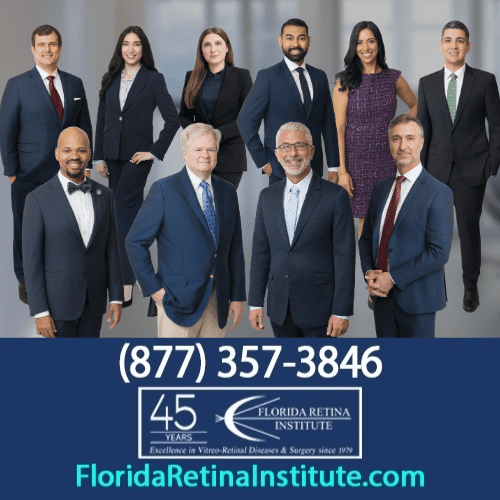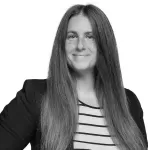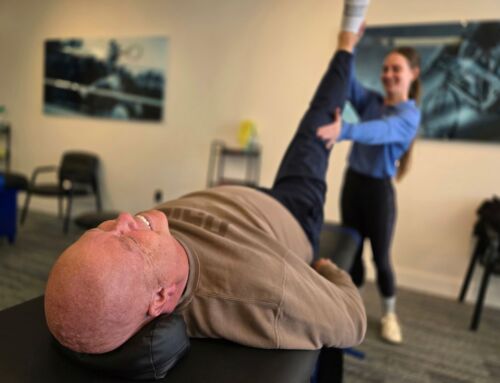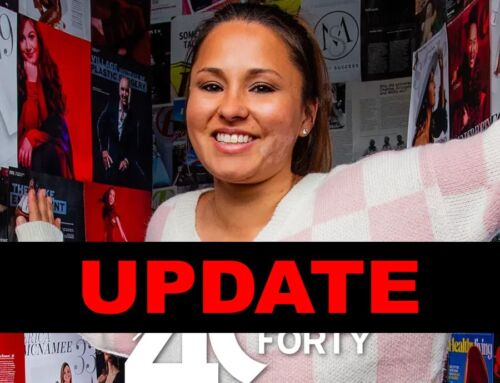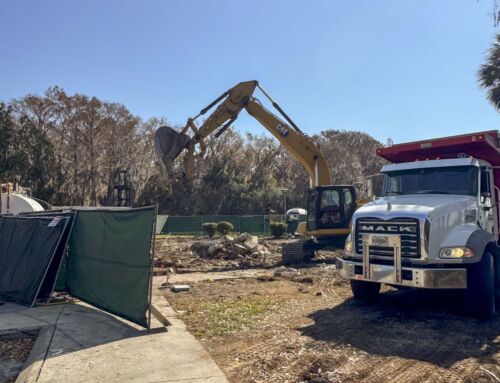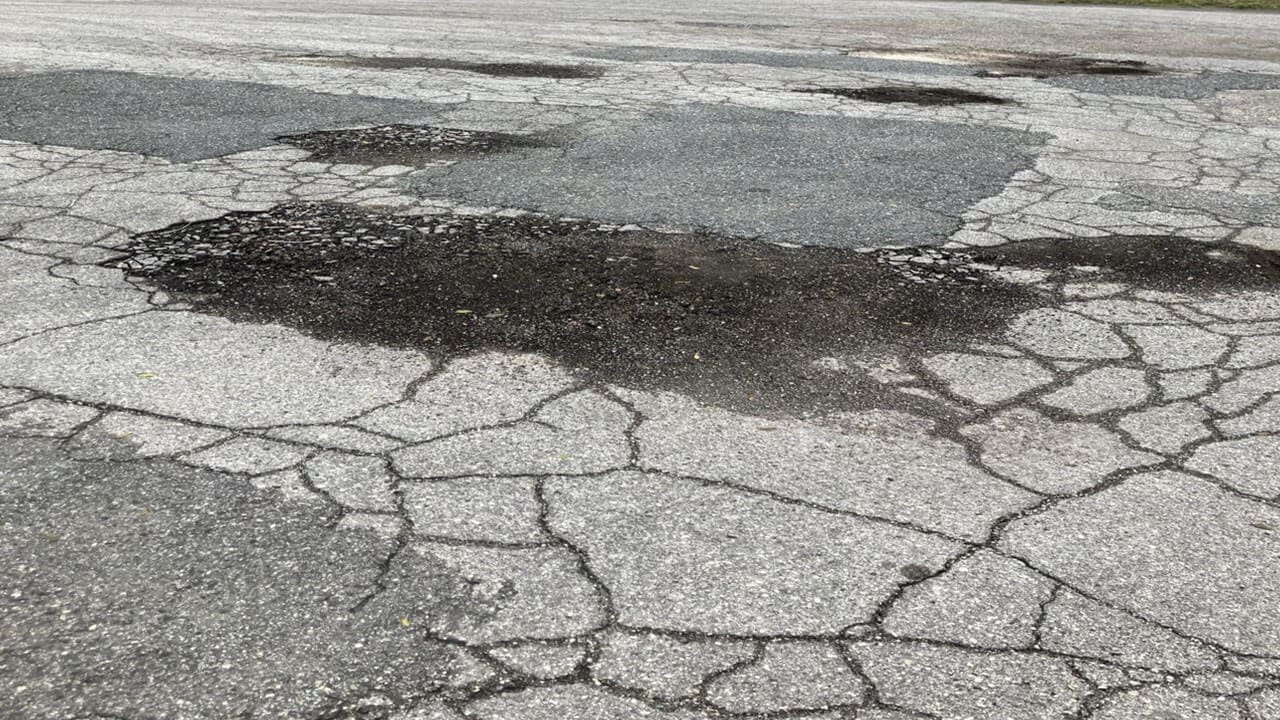
By Cindy Peterson
Gas Tax to Fix Lake County Roads Fails at Commission Meeting

A proposal to levy a five-cent local option fuel tax in Lake County for 10 years failed to secure the supermajority vote required by law, leaving county leaders to continue patching together funding for road resurfacing from existing sources.
The ordinance would have taken effect Jan. 1, 2026, added a new five cents per gallon in Lake County, and distributed proceeds among the county and city municipalities. As read into the record before the vote, the measure required a higher threshold, known as a super majority. In this case, 4 out of 5 commissioners needed to vote yes.
Public Works Operations Director Jordan Salinger outlined why staff brought the proposal forward again. Resurfacing needs are rising and traditional revenue sources are constrained. Impact fees, she said, can only be used for capacity projects (new lanes, widenings, intersection and safety upgrades) and are capped and phased by state statute, with the next opportunities to increase them not arriving until October 2027 in the West District and January 2028 elsewhere. Sales tax—split among the school board, municipalities and the county—sends about 17% of the BCC’s share to Public Works, but that revenue, like impact fees, is structured and limited.
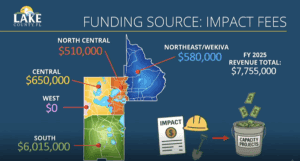
Resurfacing today is paid from a mix of sales tax, MSTU and general fund dollars, meaning “the majority of resurfacing right now is funded through a property tax mechanism,” Salinger says. Staff also noted county and municipal gas taxes are not indexed to inflation—they are a penny.
“No matter what the gas price does, we still get a penny,” Jordan says.
Meanwhile construction costs have outpaced inflation, fuel efficiency has climbed, and more people work remotely; electric vehicles are still a small share locally (about 2% EVs and 4% hybrids), but overall “none of us are really contributing as many pennies to the pot as we used to,” she adds.
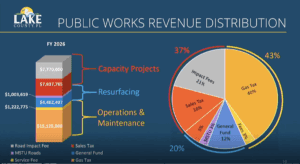
Commissioners were split after hearing public comment. Supporters framed the levy as a user fee tied to road use and a way to free up general and capital dollars for long-deferred capacity projects.
I think it’s time that we need to do something and it’s going directly to what we need to have done, which is the roads,” Commissioner Kirby Smith says.
Chairwoman Leslie Campione said she would back resurfacing dollars but not by unilaterally raising taxes, arguing the question should go to voters.
“I never ran on a platform of raising taxes, never,” she says. “I would ask the voters to support this.”
Business and housing stakeholders weighed in before the vote. In a letter dated Sept. 2, the Lake & Sumter Home Builders Association urged residents to support the tax, calling transportation “one of the most pressing issues” and arguing visitors and commuters would share the burden.
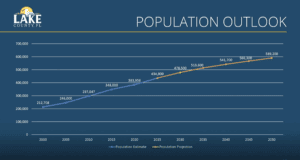
An Affordable Housing Impact Statement dated Sept. 5 found no direct impact on affordable housing but flagged indirect effects: potential positives (better access to jobs if transit improves) and a negative that gas taxes are regressive, adding up over a decade for lower-income households dependent on cars.
When the vote was called, Chairwoman Campione and Commissioner Anthony Sabatini voted no, which did not give the supermajority needed to pass.
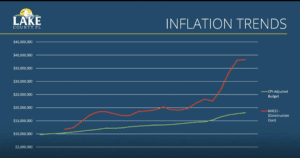
Now that it didn’t pass, where does money come from?
Lake County will continue funding resurfacing with the current mix of sales tax, MSTU and general fund dollars. Impact fees remain unusable for maintenance, and their next potential increases are locked by statute until 2027–2028. Without the new levy, the county’s ability to add resurfacing miles will continue to compete with other budget priorities.
What happens next?
Several paths were discussed without final action, bringing a similar ordinance back in a year when the political environment changes, placing the question on a countywide referendum, continuing to seek legislative fixes, such as indexing local gas taxes to inflation, and adjusting internal budget priorities during the broader millage and reserves discussions later in the day.
Originally from the small town of Berryville, Arkansas, Cindy has become a multimedia specialist in journalism, photography, videography, and video editing. She has a B.S. in Communications from the University of Central Arkansas and produces Style Magazine's Sports Hub Podcast and the Healthy Living Podcast. She also produces for Beacon College’s Telly Award-winning PBS show, “A World of Difference.” When she isn’t working, Cindy loves traveling the National Parks with her husband , Ryan, and son, David, photographing wildlife.





























